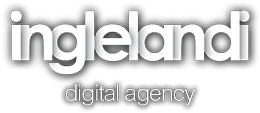A social media guide helps you understand how to use social platforms to strengthen your brand, increase awareness, and build meaningful connections with your audience. In today’s digital era, the right social media strategy can define the success of a business. With the right content, targeted campaigns, and a consistent presence, you can turn platforms into a powerful growth tool.
At Inglelandi Digital Agency, we know that every business needs a practical social media guide to fully take advantage of what these platforms have to offer.
What is Social Media Marketing?
To begin with, Social Media Marketing is the process of creating, publishing, and managing content on platforms like Facebook, Instagram, TikTok, and LinkedIn to engage your audience and grow your brand. It’s not just about posting; it also involves strategic planning, ad campaigns, community management, and data analysis.
Why is it important for your brand?
Social media is the most direct communication channel with your customers. It’s the space where your brand can develop its personality and connect more closely with its audience. With targeted and thoughtful content, you boost brand awareness and build a consistent image that inspires trust.
A continuous presence and active engagement help create relationships that go beyond a simple transaction. They turn into long-term bonds of loyalty. At the same time, every post, campaign, or ad acts as a “bridge” that brings more visitors to your website, increasing your chances of new sales.
Most importantly, you build an audience that doesn’t just follow you but supports and stays loyal to your business. In short, social media marketing helps you stand out and grow in a highly competitive market.
Are you interested in this service? Learn more HERE!
5 Key Benefits of Social Media Marketing
1. Stronger Brand Awareness
A consistent presence on social media through well-designed campaigns makes your brand more recognizable and trustworthy. Every post, image, or video shapes your business identity and creates a lasting impression.
2. Increased Website Traffic
Social media drives users directly to your website. With strategically placed links in posts, stories, and ads, you can increase traffic, boost sales, and improve your search rankings.
3. Better Customer Service
Direct communication via comments, messages, and reviews is a unique opportunity to truly listen to your customers. Quick responses create positive experiences and strengthen trust.
4. New Customer Opportunities
With advanced targeting tools, you can reach people who are genuinely interested in your products or services. This means more opportunities, a bigger client base, and better results at a lower cost.
5. Valuable Insights
Every like, share, and comment is data that helps you understand your audience better. Platforms provide analytics about what they like, when they are most active, and which content performs best. This knowledge allows you to adjust your strategy with precision.
4 Tips for Social Media Success
1. Create Quality Content
Make sure your content is attractive, educational, and relevant to your audience.
2. Boost Engagement
Use polls, Q&As, and contests to increase interaction.
3. Use Social Analytics
Analyze your data to learn what works best and when is the right time to post.
4. Stay Consistent
A steady posting schedule increases reliability and keeps your audience engaged.
Conclusion
To conclude, this social media guide shows that the right strategy can make all the difference for your brand. From content and ads to interaction and analytics, every step brings you closer to success.
At Inglelandi Digital Agency, our team is ready to guide you. Contact us today to grow your brand the right way.
Frequently Asked Questions (FAQs)
1. How can I increase my followers on social media?
With quality content, frequent engagement, and targeted ads.
2. What is the best time to post?
It depends on your audience. Platform insights show when they are most active.
3. How do I measure performance?
Through impressions, engagement, clicks, and conversions using analytics tools.
4. How should I handle negative comments?
With professionalism, calmness, and a problem-solving approach.
5. Which platform is right for my business?
It depends on your target audience and the type of content you create.
